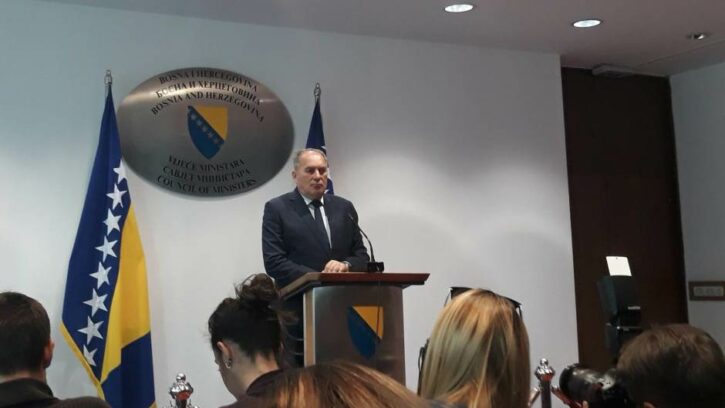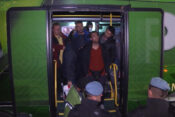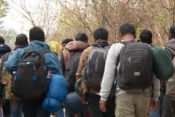
The crisis the waves of migrants have caused in Bosnia is not as bad as the country’s dysfunctional system is making it, as others have successfully coped with much larger numbers of people passing through, Bosnia's Security Minister Dragan Mektic told journalists on Wednesday.
In 2015, the same number of migrants passed through Serbia and Croatia in three days as through Bosnia and Herzegovina in two years, Mektic said at a press conference.
“You can see how in our neighbouring states this is not some special or serious problem and that they have more or less solved it,” the Minister said.
“But here in Bosnia and Herzegovina that represents some kind of unsolvable problem because we are a state which functions based on consensus and coordination. In our neighbouring countries there are centralised bodies which deal with the issue of this crisis, make decisions and respect them at every level,” he explained.
Mektic said that Bosnia can not cope with any serious crisis, considering the way the country is set up.
He said that Bosnia’s border to the east is porous and the migrants manage to cross it illegally but that once they are in the country, the government is obliged to apply the UN Convention on the protection of migrants.
“They have rights and we need to provide them with humanitarian treatment. The intention of all of these migrants is exclusively to cross over to Western Europe,” he said, adding that not even five percent of the migrants in Bosnia have applied for asylum and even those who have applied, have never completed the process because they simply disappeared.
Thousands of people who entered the country this way are concentrating on the western border because they are looking for ways to enter Croatia, this way entering the European Union – their intended destination.
But while they are in Bosnia, the country is obliged to supply them with basic necessities. The government established several centres for migrants – in Bihac, Cazin, Sarajevo and Mostar.
At a meeting in Brussels, Bosnian and EU officials decided to build another facility for the migrants.
The Bosnian side offered a run-down facility called Vucjak but the EU refused to finance it because it was a health hazard. Now the government is looking for another location, Mektic said.
Local authorities in Western Bosnia have offered one facility for adaptation. It could serve as an additional migrant centre but it is private property and the EU does not want to invest into private properties, he explained.
The owner of the suggested location is the same man who owns a hotel that was rented for migrant accommodation.
“Is it OK for us to give him 80,000 or 90,000 euro a month?” Mektic asked. “But now the narrative turned into allegations that I or the Ministry do not want to solve the problem,” he said.
The EU is offering 10 million Euro for the adaptation of a new facility but it wants to know which location it will be.
Authorities have found several government-owned buildings that could be refurbished but each time the local communities have put a veto on the decision to turn them into migrant centres.
Another problem is the Bosnian Serb part of the country, Republika Srpska, which does not even want to consider a location for migrants on its territory, Mektic said.
There is not much Bosnia can do about being on the migrant route but it can find some location to house them, he said.
“There are abandoned barracks, schools, factories in Bosnia and Herzegovina. It can’t be a private facility. That was agreed in Brussels” he concluded.







